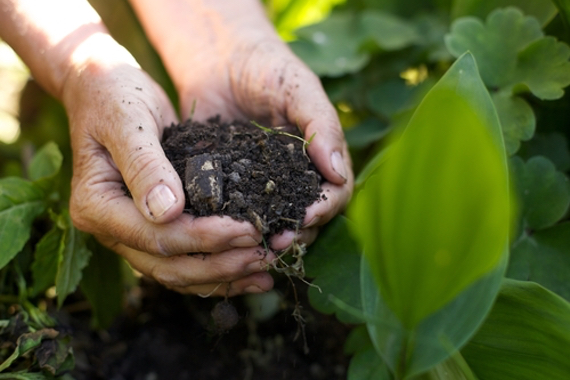


Australia's most comprehensive organic and natural directory
Blog / Garden
30 Oct 2015Why you should start composting

Almost half the food that we throw away can be composted. When this waste is sent to local landfills, air is unable to access it which causes dangerous green house gases to be released as it decomposes. Learning how to compost is one of the easiest and cheapest way for you to save the environment. In above-ground home composting systems oxygen is able to speed up the decomposition and the amount of green house gases released is greatly reduced.
You can compost by putting organic material in a stationary bin or in a pile outside in a sunny spot. If it is in a cold and shady place the decomposition will happen at a slower rate. Make sure you add a combination of plant matter, dry matter like newspaper, wood chips or dry leaves, and some moisture. This mixture of dry and moist matter allows the compost pile to be properly aerated.
Things that can be composted include vegetable and fruit scraps, leaves, tea, coffee, dirt, flowers, soil, egg shells, grass, hair, ash, weeds and wood. Do not add meat, dairy, bones, animal droppings, metal, glass or plastic to the compost pile. Make sure the materials put onto the compost pile are cut into small parts so that the bacteria can break them down more easily.
Worm composting is a new and efficient way of composting that is gaining popularity. Worm farms or worm bins are very convenient and can be kept under the kitchen sink, in the garage, on patios and balconies or in the garden. This allows those who live in apartments, or do not have a garden, the chance to compost.
Worm composting involves adding red worms to your compost bin and allowing these worms to convert all your food scraps into a wonderful, liquid plant food or “tea”. The same food rules apply to worm composting that apply to regular outdoor compost heaps.
After about 2 months the worms will have reduced the compost pile to a natural liquid fertiliser that encourages healthy soil and better plant growth.
Composting allows you to improve the quality of your garden or pot plant soil without spending money on fertilizers. It reduces the amount of waste that ends up in landfill sites and reduces the amount of greenhouse gases that enter the environment.
Worm farms, red worms, composting bins, composting systems and accelerators are all available here.
Sources
http://www.cleanup.org.au/PDF/au/cua_wormfarming_fact_sheet.pdf
http://www.cleanup.org.au/au/LivingGreener/composting.html
https://www.diygarden.co.uk/gardening/composting/








